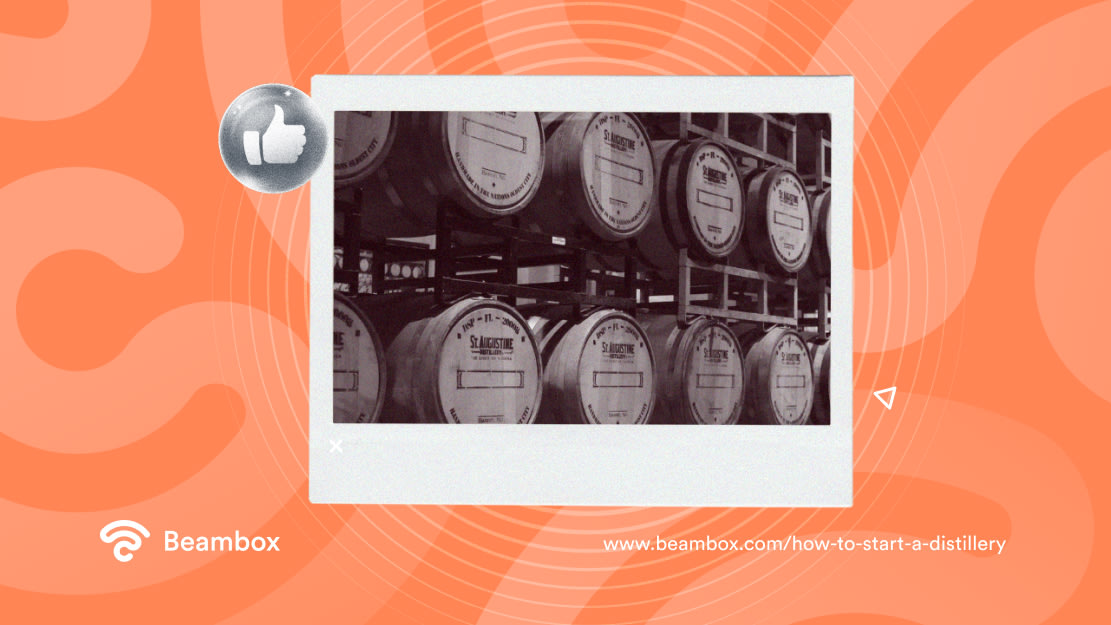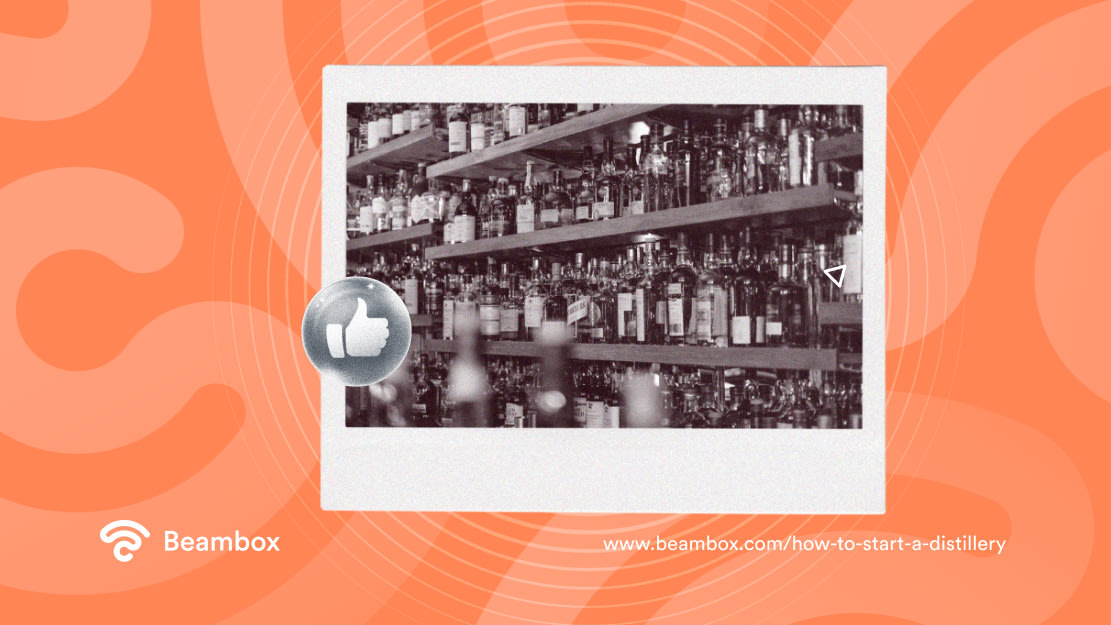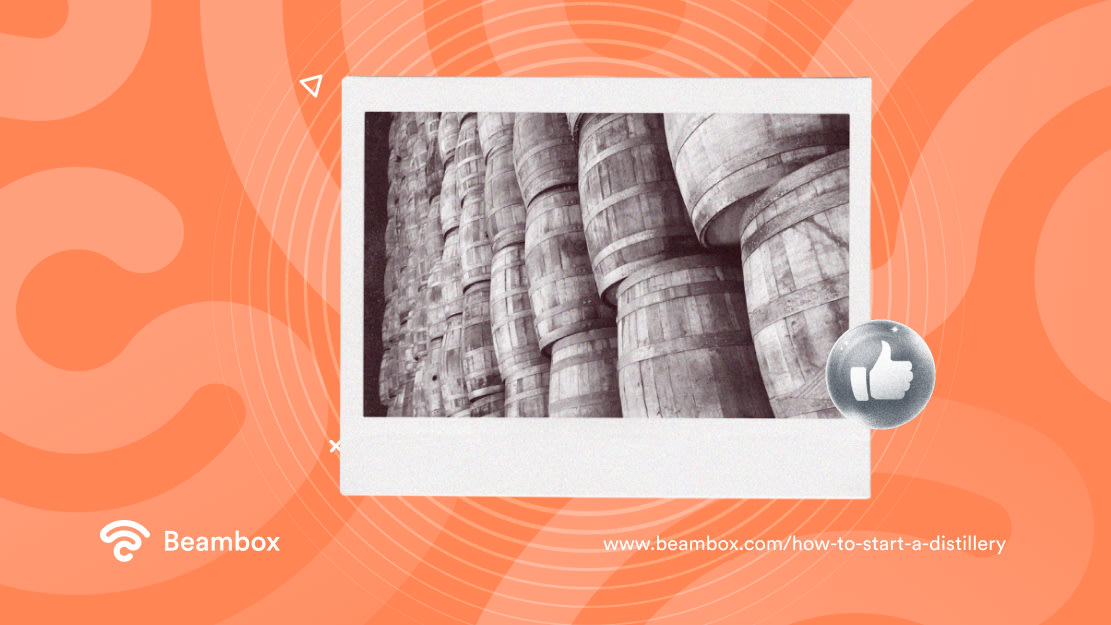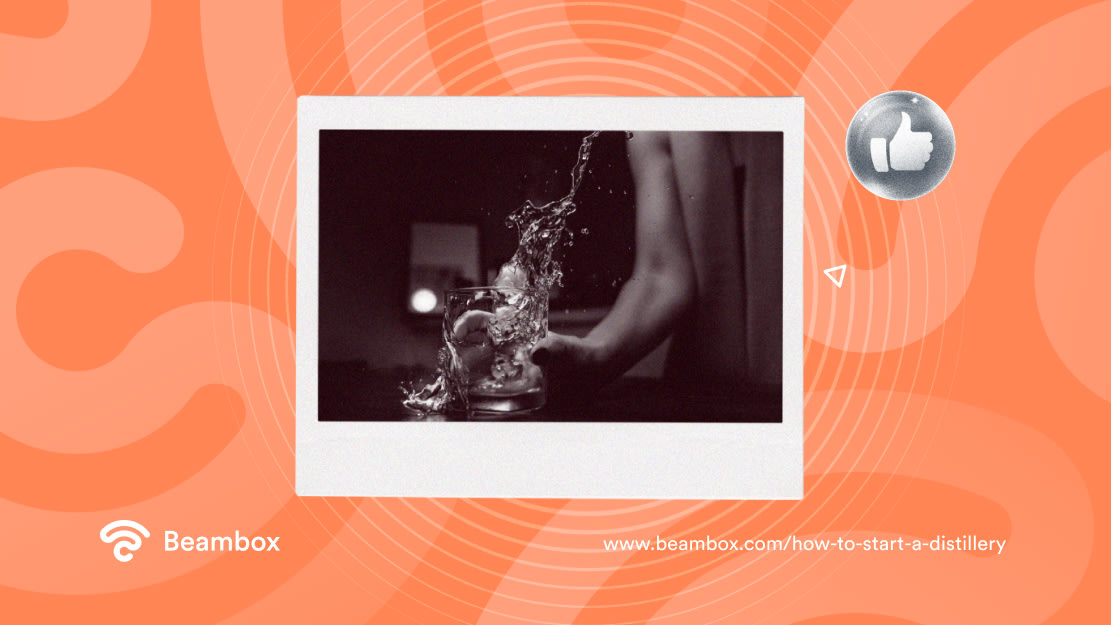Learning how to start a distillery is a brilliant step to take. A distillery business is one of the most profitable ways to capitalize on spirit trends. And if you are creative, you can quickly boost your distillery business to success. Half the battle is just in choosing eye-catching packaging - which you can organize with packaging and labeling software. Once you have your delicious spirit product, the rest is all marketing. If you run a craft distillery, you can expect gross profit margins of 30-45% a year. It is not unlike starting a brewery, instead just using slightly different equipment to distill rather than ferment.
With all this in mind, you can quickly see how a distillery business is a fulfilling investment. This is inspiring and stimulating on all levels. Distilleries might not be for the faint-hearted, but they provide exciting business opportunities. You’ll need killer recipes, key marketing materials, and a business brain to juggle all the equipment monitoring and processing.
Are you up for the challenge? Setting up a distillery is one of the most exciting business ideas to bring to reality. Here’s everything you need to know to set up a massively successful distillery.

How To Start a Distillery: Types of Distilleries To Choose From
Before we dive into how to start a distillery, you need to understand the different types of distilleries. The kind of distillery you choose will decide what profitability you achieve and also dictate your business scaling. You have to select the right distillery type for you and your vision. And while you can constantly adjust things down the line, you’ll have a much smoother ride if you choose first.
These are the main distillery types, so scan through these different options and see which takes your fancy.
Distillery Bars
Distillery bars are fantastic in that they allow you to hedge your bets. Part hospitality venue and part distillery let you rely on supporting income from the bar venue. This is a fantastic distillery to run if you want instant profit. The other types of distilleries take a little longer as they rely on their spirit sales gaining traction.
Distillery bars are usually quite large venues, especially if you have both business elements on the same site. You’ll need enough to invest in bar decor and distillery equipment at once. You’ll also need to carefully consider location, as your bar needs to attract people on foot and in trendy areas. Remember that you’ll need a different business license and checks to run a bar. But overall, producing liquor for your bar is an extra level of fun - this is a great distillery type.

Micro-Distilleries
Micro-distilleries is a tiny distilleries producing just a few spirits. This is the perfect type of distillery if you only have a small space to rent or buy. And if you’re in a trendy environment.
Micro-distilleries are ideal if you are happy waiting to build up a sizeable income. If you are looking at how to start a distillery from more of a hobby perspective, micro-distilleries are likely well-suited. You won’t hit high figures unless you start thinking outside the box - perhaps offering distillery tours and experiences. Or if there is something really niche about your products, people are willing to pay higher rates.
Craft Distilleries
Craft distilleries are very similar to micro-distilleries. In fact, the only difference is how the distillery business produces its spirits. Craft distilleries use more traditional practices, while micro-distilleries use modern techniques. Both craft and micro-distilleries produce on a small scale. Yet, craft distilleries are more about the process than the product.
If you have family recipes or a traditional production method, a craft distillery may be for you. Because there is a strong niche in this distillery business, this also is easier to market.
As you can see, how to start a distillery starts with questioning what distillery you want. These three distillery types are the main choices. However, it also leaves out the largest distillery. A standard distillery can produce thousands upon thousands of bottles a year. If you have the funding to start a large-scale distillery, go for it. You’ll see higher rewards for the higher risks.

How To Start a Distillery: How Much Does It Cost To Start a Distillery?
So, how much does it cost to start a distillery? Simple; it varies. Overall, expect to pay anything from $30,000 to $500,000. It depends on the types of distilleries, whether you buy or rent a building, and how much you invest in marketing. Of course, it also depends on where you open a distillery because every area has licensing laws. Even in the US, licensing laws vary per state. To give you an overall idea of start-up costs, these are the main costs of starting a distillery:
- Equipment: $50,000-250,000
- Marketing: $2,000
- Licensing: $1,000
- One month of rent: $1,000-3,000
- One month of staffing: $2,000
- Ingredients for the first batch: $1,000-2,000
- Packaging: $2,000
As you can see, a distillery business has some steep upfront costs. Learning about how to start a distillery is a jumpscare cost-wise. You’ll pay a minimum of around $60,000 - and that’s with renting a building, not buying. You’ll likely have to have a large upfront savings pot or apply for investors and business loans. Even your business license costs; you’ll need to invest appropriately in marketing regularly to get results. Luckily, there are some ways to cut corners and reduce this upfront investment:
- Complete some marketing yourself if you are experienced with social media marketing and Tik Tok.
- Run the distillery yourself initially to avoid hiring staff.
- Purchase discounted equipment or secondhand equipment.
- Design the packing yourself or by using AI.
Strike deals with local businesses to reduce the burden of these initial costs. Get some customers before you open your doors to balance things out quickly. See if any restaurants would like locally distilled products at a slight discount.

How To Start a Whiskey Distillery: Simple Steps
Starting a whiskey distillery is almost identical to any other distillery option. Whiskey distillation is mostly all about equipment - there isn’t much space for creativity. You can have different blends and flavors, but the process is relatively standard. To perfect the ideal recipe, we suggest having some trial runs at home until you find the perfect mix. Then you just bring the recipe to the standard distillation process.
We are getting ahead of ourselves, though. Let’s answer the question of how to start a distillery more specifically. These are the simple steps of how to start a whiskey distillery:
- Form a business plan and nail your recipe at home - this means, yes, taste tests with friends and family. Set a firm budget at this stage as well.
- Register your company details and find a building for your distillery.
- Get the necessary licensing and checks complete, including your business license and insurance.
- Purchase your equipment and initial ingredients.
- Start marketing (if you haven’t already).
- Release your first whiskey batch and continue marketing like your life depends on it.
Of course, this requires a few steps in between and some extra details. However, as a whole, this no-frills approach to setting up a whiskey distillery will keep you on track.

How To Start a Distillery: How Much Does It Cost To Start a Micro Distillery
If that’s a whiskey distillery business, how much does it cost to start a micro-distillery? In short, a lot less than a standard distillery. A standard distillery costs a lot more because more equipment is necessary to produce more bottles. With a micro-distillery, you require less equipment is as this distillery only produces small amounts. Similarly, it costs less in upfront materials.
Ready to look at some actual stats? When researching how to start a distillery - specifically for micro-distilleries - these are the costs you should expect.
- Equipment: $25,000-$100,000
- Marketing: $2,000
- Licensing: $1,000
- One month of rent: $1,000-$2,000
- One month of staffing: $1,000
- Ingredients for the first batch: $500-$1,000
- Packaging: $500-$1,000
This means you can start micro-distilleries for as little as $35,000, a massive reduction from standard distilleries. You need fewer ingredients and packaging because you are creating fewer bottles. Similarly, you won’t need as much equipment if you aren’t preparing a high volume of spirits. You won’t need as many staff if it is a smaller distillery.
The only things which stay the same cost-wise are licensing (although this can vary a little) and marketing. Marketing is always vital - whether you are running marketing campaigns for a brewery, hair salon, restaurant, or distillery.
How To Start a Distillery: Marketing Considerations
You now know all the details about how to start a distillery. But as we mentioned, marketing is the most important thing to consider if you want meaningful success. It is only fitting that we dedicate an entire section to marketing considerations for your distillery business.
There are many key marketing materials to consider, from social media marketing to email marketing. You can invest in all sorts, including more physical forms of marketing like promotional events.
Promotional events are the most fun to orchestrate, especially if you are an extrovert. These events can be anything and are designed to draw in crowds that don’t usually know about your business. Promotional events usually provide community bonding and links.
Social media marketing is where Tik Tok, Instagram, and Facebook come in. These are the magic three, and they interlink effectively together to create an overall social media marketing campaign. You can produce content like Instagram reels and sync it with your business Facebook to post automatically. Instagram reels are then easy to repost on Tik Tok and vice versa.
Email marketing is where you create an email list and target subscribers with different email types. These emails can be promotional, transactional, or fun, informative newsletters. There are loads to consider. Email marketing is also perfect to combine with a customer loyalty program. So if you want a spirits loyalty program, consider investing in this marketing type.
Finally, SMS marketing is a fun way to connect with your customer base and get marketing your distillery business. SMS messages are super personal and have one of the best open rates. This means you can guarantee a brilliant engagement with your marketing efforts.
Final Thoughts: How To Start a Distillery in a Month
Starting a distillery in just a month is a bold move but possible. You just need to learn how to start a distillery and have a property and saving pot available. You can start a distillery monthly if you put in hours a day. But you must already have a lease or property purchased and a good marketing idea. A more realistic goal is to start a distillery business in six months if you don’t have these things already. Remember, the tortoise wins the race, so it isn’t all about speed.
Remember what we said about distillery bars if you want to start as quickly as possible. Distillery bars are better for rapidly building business. They bring in revenue from the bar element even when the products have not gained traction.
Would you like extra help understanding how to start a distillery? Would you like to know more about key marketing materials like WiFi marketing? At Beambox, we’d be excited to help you. If you outsource to us, you can focus on different elements of your business and let us handle tricky marketing. We are experts in helping businesses through the power of WiFi marketing. Let’s get you on your way to success today.
Beambox offers the best all-in-one WiFi marketing platform. We use a mixed approach to connect, capture, and keep more content customers. Start your Beambox free trial today. Let us help develop the perfect strategy, ensuring you know exactly how to start a distillery.
Get Started With Free WiFi Marketing
Beambox helps businesses like yours grow with data capture, marketing automation and reputation management.
Sign up for 30 days free